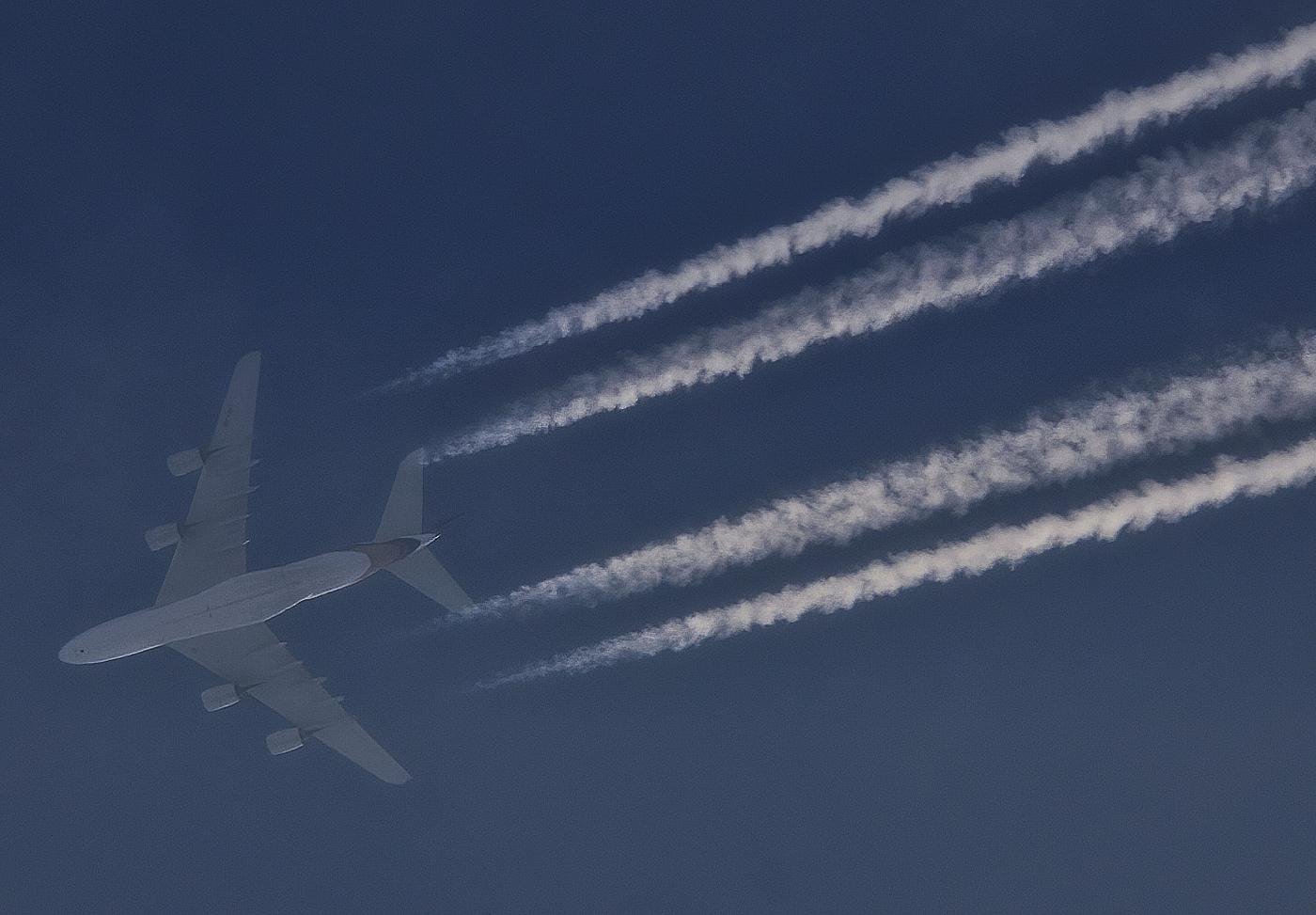This article is published in Aviation Week & Space Technology and is free to read until Jul 04, 2024. If you want to read more articles from this publication, please click the link to subscribe.

A consortium of aviation stakeholders, including seven airlines, is seeking EU funding for a large-scale contrail mitigation trial aiming to cover 18,000 flights over a four-year period.
Over the past few months, Breakthrough Energy, a non-profit organization founded by Microsoft entrepreneur Bill Gates, has brought together a consortium of stakeholders called “Contrail Pilots” to accelerate contrails research and identify operational challenges. The group also includes flight planning specialists, research organizations and weather experts.
Contrail Pilots is now waiting to hear whether its application for a €9 million ($9.6 million) grant from the EU Innovation Fund, which channels money raised from the EU emissions trading system (ETS) into environmental projects, has been successful. The €9 million represents around 60% of the budget needed for the €15 million trial, which would begin with a year’s technical preparation in 2025, followed by the four-year trial from 2026 to 2029. Results of the funding application are expected to be made public in September.
The trial builds on earlier studies performed by Breakthrough Energy, Google and several airlines. If the larger trial is approved, the aim is to mitigate contrail formation for at least 18,000 flights across all participating airlines.
Breakthrough Energy head of contrails policy and strategy Matteo Mirolo described the large-scale trial as “a concrete and pragmatic next step.” He called on other airlines to take part, noting that the trials will begin to look at how contrails research translates into day-to-day airline operations, affecting flight planners, pilots and air traffic control.
“The idea is to keep contrails research speeding forward. We are rushing to find out more, and get a better understanding of the challenges involved,” Mirolo told Aviation Week. “The fruit isn’t necessarily low-hanging, but it’s up there on the tree. We need to climb the ladder to reach it, step by step, to avoid a fall.”
Mirolo hopes the study will shine a light on any contrails blind spots—in terms of scientific research and operational issues—helping accelerate change.
Global aviation consultancy firm To70 supported Contrail Pilots with the design of the trial and the development of the EU funding proposal. “This ‘living lab’ will help stakeholders understand the operational impact of contrail mitigation,” To70 sustainable aviation consultant Vincent de Haes said. “Supported by contrail science and backed with European funding, this project gives airlines and flight planners an opportunity to show what can be accomplished in contrail mitigation.”
On June 18-20, Breakthrough Energy and Google Research ran a three-day contrails workshop in London. The meeting brought together experts from around the world to look at the latest contrail science and next actions, including the planned trial.
According to contrails specialist Blue Lines, 34 airlines have publicly announced that they are looking into the environmental impact of contrails, up from just nine in August 2023. Of these, 28 are participating in trials or collaborating with scientific research. Blue Lines said Delta Air Lines was the first airline to set contrail reduction targets, aiming for 80% reduction by 2035 and 100% reduction by 2050.
Several airlines—including Air Canada, Air France, China Airlines, Eurowings Discover, Hawaiian Airlines, Iberia and Lufthansa—are also participating in the In-service Aircraft for a Global Observing System (IAGOS) program.
Other contrails initiatives include EASA’s newly formed ANCEN group, SESAR’s CICONIA project, the EU-funded CONCERTO project, the RMI Contrail Impact Task Force, the German 100 Flights program, and work by contrail mitigation specialist Satavia. Various specialists are also performing research, including Boeing, Breakthrough Energy, Austrian flight planning specialist Flightkeys, GE Research, German Aerospace Center DLR, Google Research, Imperial College London and NASA.





